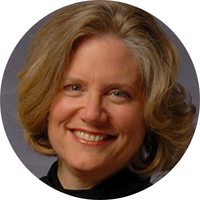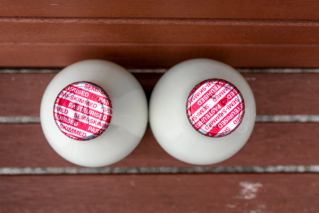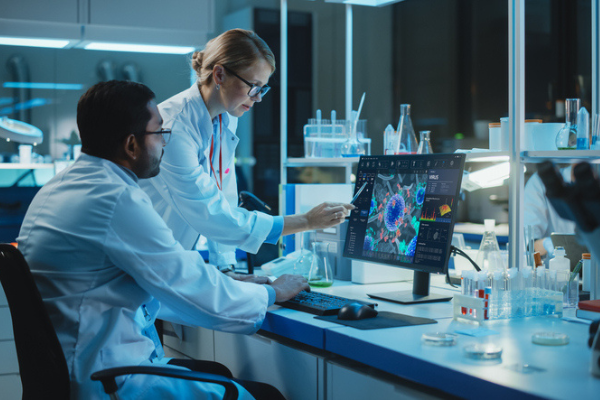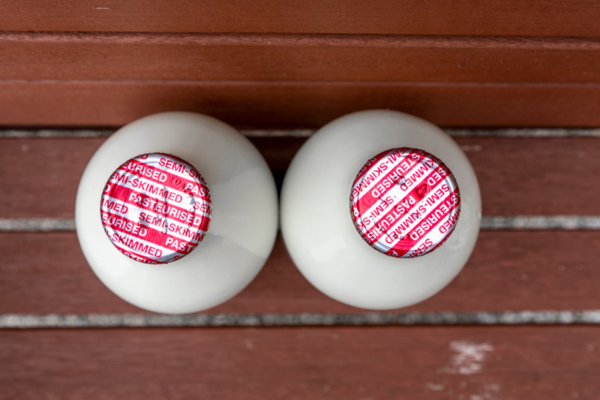
How have your parents influenced your leadership style?
My mother taught me the importance of clear and thoughtful communication. She always said, “Ask and you shall receive; seek and you shall find; knock and it shall be opened unto you.” My mother got that from the Bible, Matthew 7:7. My graduate advisor, Prof. Alan Balch, revised that to, “If you don’t ask, you don’t get!” Why? Because he could not read minds.
Early in my professional career, my Rohm and Haas manager, John Graham, said, “If I’m always saying, ‘Yes’, you are not asking for enough.” The flip side of that is, “Watch what you ask for, you just might get it.” So, whether I am working with legislators on Capitol Hill, or with potential funders of my latest endeavor, or with colleagues on ACS committees, I make sure that I carefully articulate my “ask”. I highly recommend the ACS training on Advocacy.
My father taught me his approach to scientific inquiry. That is, the “early bird gets the worm”. He encouraged me to ask, “Why?” At school, my teachers did not always appreciate this. At home, my Dad would pull down his Handbook of Chemistry and Physics and go into the explanation. I specifically remember the time, I asked, “Why do they put salt on the roads in the winter?” That launched us into a full-blown discussion of the physical properties of mixtures, complete with phase diagrams.
At Rohm and Haas, our Chief Technology Officer pressed us to “ask questions, lots of questions” in the pursuit of new technologies. “Why do we do it that way? How could we do this better, faster, cheaper…?” For him, the bottom-line was: whoever asks the right questions, will do the right research, and will get to the finish line, the new products, or processes, first!
You served as ACS President in 2007. What should people know about serving as ACS President, before they decide to seek the office?
Being asked to stand for president-elect of the largest scientific society in the world is a heady honor but, as my graduate advisor said, “Get over it, what is your agenda? Why and how will science and society be better because of your presidency?” I replied, “I’ll get back to you on that.”
After some serious thinking, cross-checking alignment with the ACS mission and vision, checking-in with past presidents on time commitments, and getting okays from bosses (both family and work), I called back. I explained to Alan that it seemed to me, in my role as Leader for Technology Partnerships, that chemistry was at a crossroads. That it was time, as a nation, to reignite our commitment to science and technology. Time to put a focus on sustainability. And, in my opinion, ACS could lead the way! How, you ask? Well, by focusing on: Education to engage legislators, the media, the public, and the next generation; Collaboration to build a vibrant and vocal technical community; and Innovation to re-create our companies, our universities, and ourselves. Alan said something like, “sounds like a solid plan.” I also got agreement on a plan of how my job and group would change, should I win. And my husband and son were on-board, too. My son, then 14, said “I’ve checked it out (with the Reichmanis’ boys) and it is great to be the kid of an ACS president!”
So, in short, I would advise any potential candidate to do their homework and formulate a plan (for work/home/ACS). Having a clearly articulated agenda makes it easy for everyone from local sections to technical divisions, from councilors to committees, from ACS staff to sister societies, and beyond, to get involved and track the progress. This is not about creating new one-off programs, rather this is about building on the past and creating a sustainable future.
In January 2007, C&EN published your ACS Presidential message. In that piece, you wrote about the need for the United States to maintain its competitiveness through improving our nation’s science and technology capabilities. How is the situation today: Better, worse, or the same?
The situation today is worse. In 2008, the National Academy of Science (NAS) released a landmark report titled Rising Above the Gathering Storm: Energizing and Employing America for a Brighter Future. This report stressed the foundational importance of research in stemming the slide of American competitiveness in a global economy.
In 2020, the messages from that report resonate more strongly than ever. A more recent National Academies report indicates that we are letting our leadership in science slip away. “Given the often long lag time from research to applications, we may not realize the impacts of being behind until we are far behind, watching other nations reap the economic rewards and strategic advantages of early S&T investment.” Marcia K. McNutt, President, NAS (2019)
What was the most memorable trip you took during the three-year period as a member of the ACS Presidential succession?
They were ALL unique, amazing, and memorable. During my entire time in the presidential succession, I was continually amazed and inspired by the energy and expertise of ACS members and those of our sister societies.
But since you mentioned trips/travel, here is what I have to say on that. While I love to travel and meet new people, all my ACS trips had an objective and what was most exciting was the impact of those targeted trips. In January in Rochester, I asked the local section what more they could do to make chemistry accessible to all. The Rochester LS partnered with chemistry students at RIT/NTID (the National Technical Institute of the Deaf) to do chemistry demos at a local school for the deaf. I later was appointed by the US Sec. of Education to the NTID National Advisory Group (yes, NAG) and still work with NTID today on DeafTEC: Technological Education Center for Deaf and Hard-of-Hearing Students, a National Science Foundation (NSF) Advanced Technological Education (ATE) National Center of Excellence.
Not so far from home, in Ambler, PA, I was 7th grade science teacher for a day. The crowning moment was when the reporter, who got sucked into the superabsorbent polymer experiment, was admonished by the students to put on his safety glasses! (Safety FIRST!) Or was it when I did a special second experiment with the class that everyone all day had said were the slow students, and the honors students came rushing back at the end of the day to find out how they finished so fast! I was involved in the initial ACS taskforce on forming a K-12 teachers association and I am a member of AACT (American Association of Chemistry Teachers) today.
As you likely know, I had a focus on sustainability and in June, at the C6 meeting in Paris with the presidents of the Royal Society of Chemistry (RSC), the Chemical Society of Japan, the German Chemical Society (GDCh), the French Chemical Society, and the Dutch Chemical Society and the American Chemical Society, we developed and signed a Sustainability Pact. (C&EN, 6/17/2007). In October, I joined the members of the EUChemS General Assembly (GA) in Frankfurt, Germany and they unanimously signed on, too! They also signed onto a letter to propose that the United Nations (UN) declare 2011 the International Year of Chemistry (IYC2011). And the UN did! Of course, we were not the only supporters.
Not once, but twice, I was on Capitol Hill to give Congressional Testimony: 1st on the Office of Technology Assessment (OTA) and 2nd on the reauthorization of the National Science Foundation (NSF). And I continue to contact my legislators, today. (Check out ACS Act4Chemistry and get involved.)
I could go on and on, but suffice it to say, this was a non-stop, eye opening, life changing experience for me. Or, as we say at UVA, WAHOOWA!
You taught a course for the University of Virginia titled, “Business and Technology Leadership in Engineering.” What gap did it fill?
At UVA, my objective was to teach undergraduate engineers (4th year; 3rd year with permission) the essential (yet untaught) skills necessary to thrive (not just survive) in today’s competitive global economy. In the process, what I learned, firsthand, was transformative. My eyes were opened-wide to the ever-increasing demands of academe—from pedagogy to research to grant administration and so much more. My course ENGR 4880, Business and Technology Leadership in Engineering, was an elective; the students said, “It should be required!” While flattering, it just reinforced the widening gap between academic training and real-world skill requirements, both hard and soft: a gap which needs to be addressed comprehensively.
Here is the description on my course flyer:
ENGR 4880 is different from the analytical engineering and chemistry courses that you have been taking for the past few years. You will be challenged to engage in perhaps unfamiliar ways. The skills you learn, once you engage, will enable you to transition more smoothly into the world of work and to move forward more purposefully in your career. The course is organized around four topics:
I. Communicating Effectively,
II. Crafting Your Own Career,
III. Leading Change from the First Pitch, and
IV. Leading – Globally, Ethically and Strategically
Having spent 30 years working at Rohm and Haas and Dow, and then at the University of Virginia, what advice do you have for young chemists debating whether to opt for a career in industry vs. academia?
This is a difficult question to answer without more information. When I advise someone, I first ask them to tell me what they like most about what they are doing and what they like least. This helps me narrow down the possibilities.
If you are thinking of academia – do you want to teach and do research, or just do research, or just teach? Do you want to write grants and publish, or not? There are different kinds of professorships and different schools have different options.
If you are thinking of industry, do you like coming up with the ideas or do you prefer reducing ideas to practice? Do you like working in the lab, or might you prefer sales and marketing? Or logistics? Or human resources? At a large company, there could be segmentation of these functions, while at a small company you may be responsible from start to finish.
But most importantly, look at the culture of the employer you are considering. Are you passionate about sustainability? If so, what is their sustainability plan? What are their goals and metrics? Do they just talk? Or do they walk the talk? Look on LinkedIn for people who work in jobs that look interesting to you and reach out to them for an informational interview (20 min. MAX!). How did they get there? What does a typical day look like? Chatting with someone in a role like the one you are considering can give you valuable insight. Find out what skills are required and if you do not have them, put a plan together to get them. And finally, tailor your resume to the job.
I have been in both industry and academia and liked (loved) them both. I liked the people that I worked with, the positive impact of the work that I was doing, the fact that I got to learn and grow and move around to different jobs at different locations, and to serve as an active ACS volunteer. At one point in my career, I designed my own job. It does not get much better than that. So, if you try something and you do not like it, or it does not fit your life situation, change it. You always have choices. You may not like them all, but you always have choices.
So, do your homework, get your priorities straight, and enjoy the journey. You CAN have it all, just not all at once.
What is the one personality trait that has been most instrumental in your career success?
I looked at a list of personality traits and selected openness, which was defined as: A degree of intellectual curiosity, creativity, and a preference for novelty. I love new ideas, new people, new places, and especially a brilliant brainstorming session but, not everyone does. Just remember, your greatest strength can be your greatest weakness. So, in my case, I must remember to be mindful of time and due dates and close strong.
What is your assessment, generally, of the chemical industry’s efforts to incorporate sustainability as a fundamental component of its operations?
Achieving sustainability is a journey, not a destination. That said, with increasing demands on decreasing resources, we are “opening the funnel” and becoming increasingly unsustainable (see Figure, adapted from The Natural Step by David Cook.
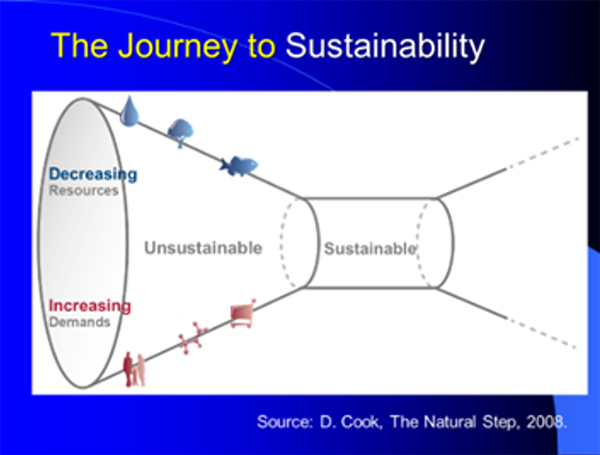
For industry, what is needed is innovation via a concerted effort to integrate sustainability into every aspect of our companies from research and development through to deployment and distribution, including all our business practices from supply chain logistics to human resources and community outreach. These efforts can be force multiplied via collaborations across industry, academia, and national labs with government agencies, non-profits, foundations, and scientific societies.
We need education on sustainability topics like green chemistry and engineering, including tools like LCA (life cycle assessment) and risk assessment. These need to be integrated into the current curriculum, not added on as disassociated concepts. I have a chapter in Teaching and Learning about Sustainability by Irvin J. Levy and Catherine H. Middlecamp (2015).
This is more easily said than done. But one good place to start is with the 17 UN Sustainable Development Goals (SDGs). And, once again, ACS can play a role.
Paint a picture of a world where many of our sustainability issues are solved. What key enablers are necessary to create that world?
Standing in a sustainable future I am breathing fresh air, drinking refreshing water, eating delicious nutritious food, using renewable energy, while living in a healthy environment with a temperate climate, ample rainfall, and tremendous beauty and biodiversity. The key enabler is science literacy. The key actors are all of us. The place to start (or continue) is the UN Sustainable Development Goals.
It can be a challenging time to be a mid-career chemist working in industry. You lived the life of a mid-career chemist during your time at Rohm and Haas, and Dow. Any advice for current-day, mid-career industry colleagues who wish to continue to thrive and advance professionally?
My top 4 recommendations are:
A) Know yourself – what you like and what you do not like, your strengths and your fatal flaws. Build on your strengths and eliminate, or avoid, your weaknesses. My two, all-time favorite, personal development books are: The Art of Speedreading People: How to Size up People and Speak their Language by Paul D. Tieger and Barbara Barron-Tieger and The Extraordinary Leader: Turning Good Managers into Great Leaders by John H. Zenger and Joseph R. Folkman.
B) Build and grow a network that supports you at home, at work and at play.
C) Cultivate a mentor, or 2, or 3.
D) Never, never stop learning and growing. My favorite book here is: The Fifth Discipline: The Art & Practice of the Learning Organization by Peter Senge.
If you had an extra hour today, how would you spend it?
I would make a lovely pot of chamomile tea, put my feet up, and call my fabulously lucid and wonderfully entertaining, 96-year old, Uncle Lew, who is in lockdown in his assisted living facility. A retired nuclear physicist, who worked at the National Academies in Washington, DC, Lew has an effortless command of the English language. I always learn a new word, or two, every time we chat. If it were not so late, I would call him right now!
Be safe! Be well! Stay engaged!
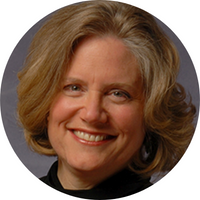
Katie Hunt was the 2017/2018 Brenton S. Halsey Distinguished Visiting Professor in Engineering at the University of Virginia. She was drawn out of retirement by the opportunity to teach future engineers how to thrive, not just survive, in the fast-paced world of work.
After completing an NIH Postdoctoral Fellowship at Yale in MB&B (Molecular Biophysics and Biochemistry), Dr. Hunt started working at Rohm and Haas in Philadelphia. Katie’s chemistry degrees include a BA from Smith College and a PhD from University of California, Davis. As the R&D Director of Innovation Sourcing & Sustainable Technologies at Dow, she developed technology partnerships across the company with universities, national labs, and the federal government.
Active in her profession, Dr. Hunt is a past president of the American Chemical Society (ACS), a Fellow of both ACS and AAAS (American Association for the Advancement of Science), and the current chair of the National Science Foundation (NSF) Math and Physical Sciences Advisory Committee (MPSAC). She also serves on the advisory board for DeafTEC, an NSF Center for Deaf Technologies, at RIT/NTID (Rochester Institute of Technology/National Technical Institute for the Deaf), as well as for GCCA (Global Cool Cities Alliance).
Katie enjoys cycling for fun and fitness with family, friends, or solo, as necessary!
This article has been edited for length and clarity. The opinions expressed in this article are the author's own and do not necessarily reflect the view of their employer or the American Chemical Society.
Copyright 2020 American Chemical Society (All Rights Reserved)

